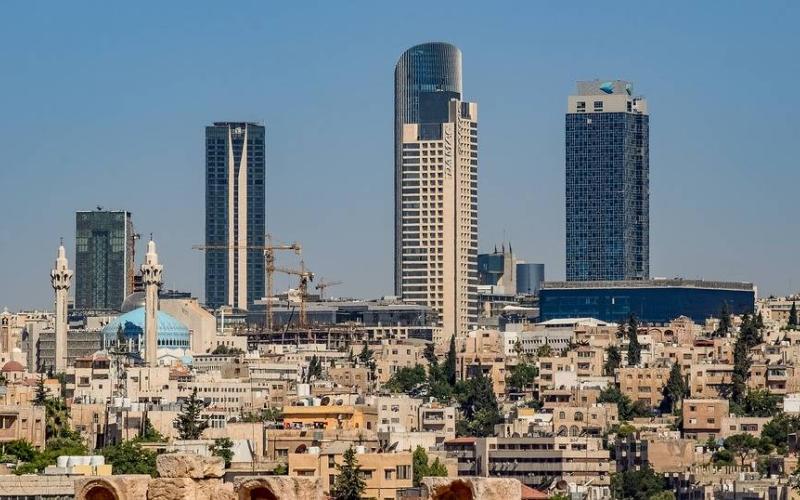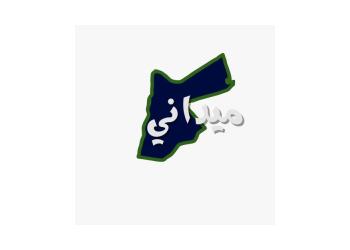This Week in Jordan July 18 (Podcast)

Radio Al-Balad 92.5 راديو البلد · This Week in Jordan July 18
Intro
Hello, and welcome back to This Week in Jordan, a weekly podcast out of Amman Net and Radio Al Balad. My goal with this podcast is to provide an overview of the top news stories in Jordan in any given week for our English speaking audience. My name is Julia Thomason, and I’m your host and I’m very excited to be back this week! Today I’ll be discussing the Jeddah Summit that concluded in Saudi Arabia earlier this week, the new system at the King Hussein Bridge border crossing, an update about the case concerning the gas leak in Aqaba last month, and finally the tragic killing of another Jordanian woman. There is much to get to today, so let’s get started.
Jeddah Summit
On July 16th, Jordanian officials joined with leaders from Saudi Arabia, the hosts of the summit, as well as the six Gulf Cooperation Council countries, Egypt, Jordan, Iraq, and the United States, at the Jeddah Security and Development Summit. Each country had different goals and hopes going into the summit, but some of the main talking points were Palestine, economic development, energy coordination between the countries, a dedication to peace and security, with discussions as well of Corona Virus as well as the war in Ukraine. There was discussion of Palestine and a new pledge of support from the group, including, President Biden, for UNRWA, the United Nations Relief and Works Agency for Palestinian Refugees. This, however, came just days after Biden’s visit to Palestine and meetings with Israeli officials, where he also publicly reaffirmed his support for Israel. King Hussein reiterated the importance of Palestine and particularly the Palestinian economy, and the effects the economic strain and blockades in Palestine have in Jordan, in a speech at the summit. There was discussion of the need for movement towards peace based on the two state solution, with an emphasis on the importance of the Arab Peace Initiative and the end of any actions to undermine the success of peace efforts. This discussion was coupled with the groups sweeping commitment to a joint goal of peace and prosperity among their countries, with a commitment of support for this goal from Biden.
Another main point of the summit was a discussion of the importance of collaboration and economic cooperation, with particular attention paid to agreements made across the region to connect the electrical grids and increase sustainable energy capacities. This went hand in hand with discussions of the global climate crisis, and what the necessary next steps and commitments will be for the countries of the summit, one such project being the “Circular Carbon Economy Framework.”
The group touched on a continued need for focused attention on the crisis in Syria and their security, with priority towards reaching a political solution, as well as a need to support Syrian refugees and their host countries. The joint statement from the summit also applauded recent work by Iraq to build lines of communication among neighboring countries and statement noted the continued support for the sovereignty of Iraq as the country continues to develop economically
The countries discussed next steps as they all continue to simultaneously recover from corona virus economically and continue to protect the health of their countries. In discussing Ukraine, the leaders stressed the importance of respect for international law and the Charter of the UN. They closed their joint statement with a commitment to continue to hold similar meetings in the future.
Though these were the main, published points of discussion and commitments made from the summit, the event was heavily anticipated by each of the countries, and many others across the world, and to many the countries did not address all that they had hoped for. Notably, particularly in the eyes of the United States, there was no strong front created on Iran and no concrete updates were announced in the normalization between Saudi Arabia and Israel. Though the US took much of the spotlight due to Biden’s controversial visit, with support and dissent from both his own country and most of the countries in the summit, another important point is the meeting of the relatively new coordination and partnership between Jordan, Egypt, and Iraq, particularly in support for Iraqi security and to decrease their dependence on Iran, all of which is of high priority for both Jordan and Egypt. All three countries have also come together in address the economic impacts of the Corona Virus and the war in Ukraine, and launched projects to mitigate these effects, including a new oil pipeline from Iraq to Aqaba. As this newfound alliance comes after a relatively fraught history, the countries don’t have the same priorities on all subjects, particularly concerning Syria and Iran.
It was clear, however, that one of the King’s main focuses in the summit, as well as in his side meetings with other leaders, was the Palestinian cause, with a particularly economic focus.
Bridge Crossing
Another large topic of discussion in Jordan this week, concerning Palestine, is the new ticket reservation system that is being implemented at the King Hussein Bridge border crossing with Palestinian territories. The bridge typically has increased traffic during the summer, but it has seen a particular surge this summer after the limits on travel the past two years due to corona virus. Jordanian officials received many complaints about the long wait times, and lack of proper staffing, particularly on the Israeli side, that make crossing the bridge unnecessarily arduous, crowded, and often doesn’t allow time for all of the thousands of people waiting to cross to make it across on any given day. There was discussion and a demand from travelers to open the bridge for 24 hour service, which was met with pushback from the Israeli forces whose limited ability to receive travelers largely restricts the usage of the bridge. The bridge is also an essential point of travel for Palestinians who are not allowed to fly in and out of Israeli airports, and therefore must cross into Jordan whenever they need or want to fly. The bridge crossing is already complicated and requires coordination between the Jordanian side, the bus companies that do the transfer, and the often long and intensive security process at the Israeli Allenby border crossing, followed finally by the compulsory transfer to Al-Karama, in Palestinian territory, for all Palestinian passengers.
Whether traveling through the VIP section, which requires an additional payment of $110 per person on top of the other entry and exit taxes, or in the general group, the strenuous waiting time and overcrowding showed the need for a change to the hours of the bridge’s opening, which were not only limited but often sporadic and the bridge could be closed with little warning. The average numbers going across the bridge each day currently hovers around 12 thousand people, while the typical average during the rest of the year is around half of that.
Just today, it was announced that 24/7 border crossing will be implemented in addition to the reservation system, that is hoped to limited favoritism and unfair treatment throughout the crossing. The results of this change are still to be seen, but despite the current confusion as systems switch, there is hope that the border crossing will become more efficient for the rest of the summer months as people travel between Jordan and Palestine.
Aqaba Gas Charges
10 people were arrested on Monday and will go on trial for the devastating gas leak in Aqaba in the end of June. The deadly explosion of toxic chlorine gas killed 13 people and injured some 100 other people, mainly workers at the port. All of the defendants are being tried for the crimes of causing repeated deaths, causing harm to others and the money of others, and finally neglecting the duties of their job, which clearly had deadly consequences. In addition, the trial with address the offense of not properly protecting both workers and the environment from the various risks and hazards of their work. They are still setting a date for the trial, but it is expected to be in the near future.
Woman killed Zarqa
North just a few hundred kilometers, another arrest was made on Tuesday after a man in Zarqa, a governate east of Amman, killed a woman after a dispute in his shop. Amer Al-Sartawi, a spokesperson for the Public Security Directorate, stated that they received report of the incident Monday evening, and an investigation was immediately launched. Once in custody, the man confessed to beating the woman to death and hiding her body inside his shop following a dispute between them. Details are continuing to come out about the nature of the dispute and her death. As I discussed in our last episode, this killing is yet another tragic death in a strong pattern across the country of men killing women, particularly this summer, that has continued to gain media attention, but there have yet to be any concrete changes to address this danger women continue to face throughout Jordan.
Outro
That is it for our news this week, once again, I’m your host, Julia Thomason. As always, thanks for listening, and I hope you tune in again next week. Until then.












































